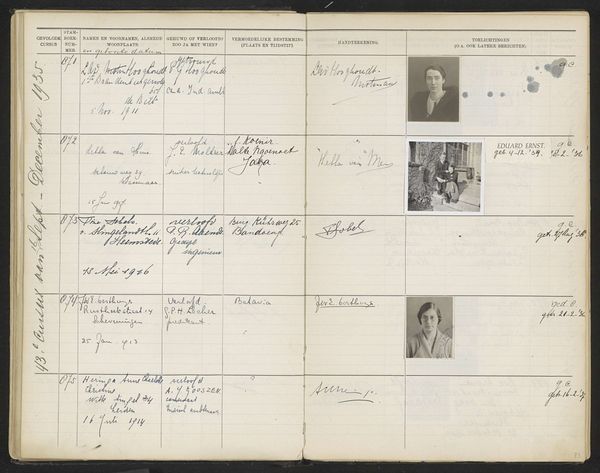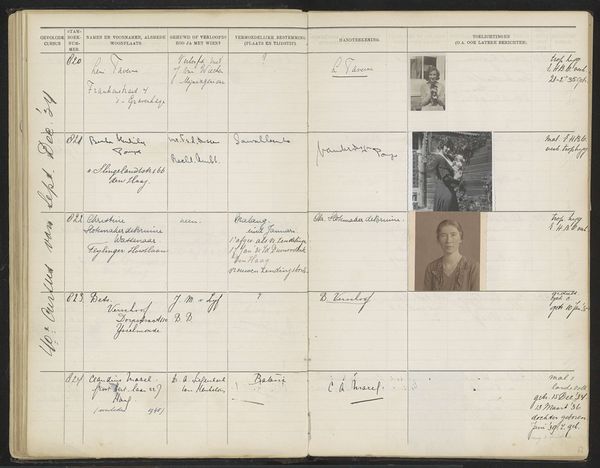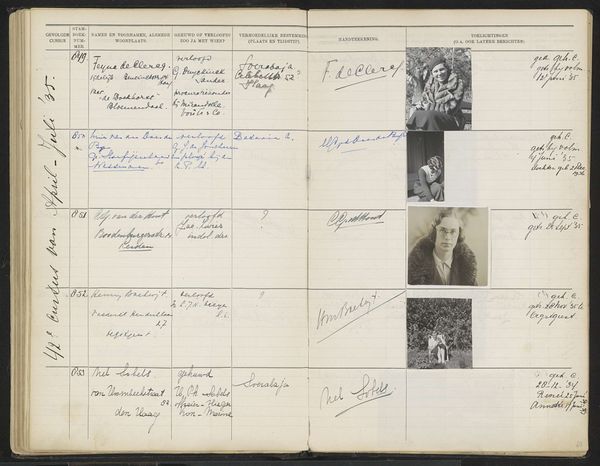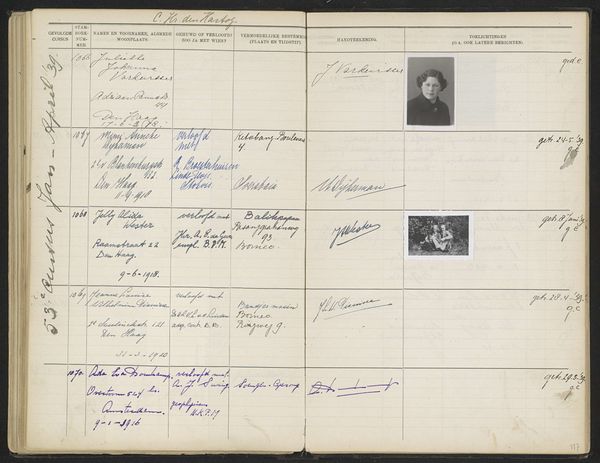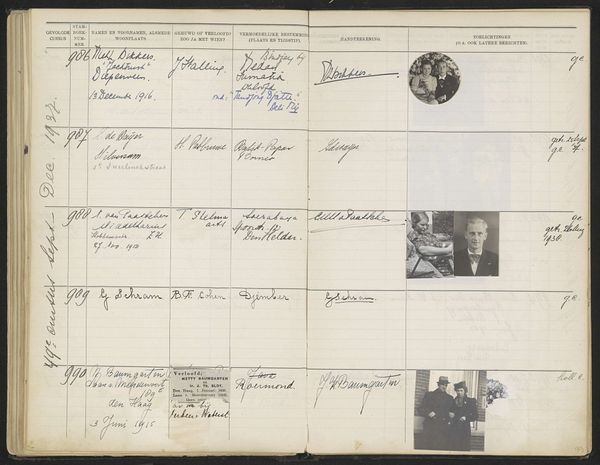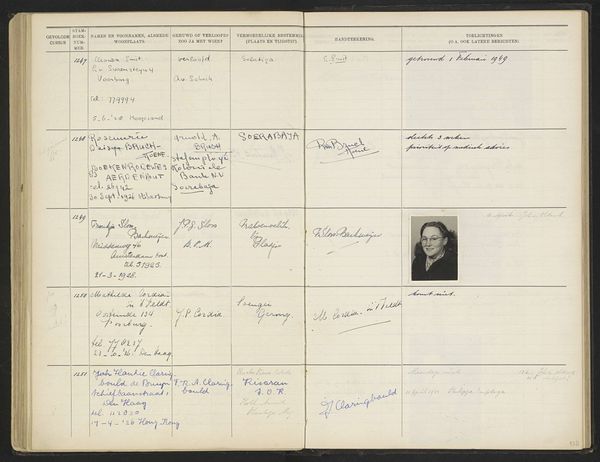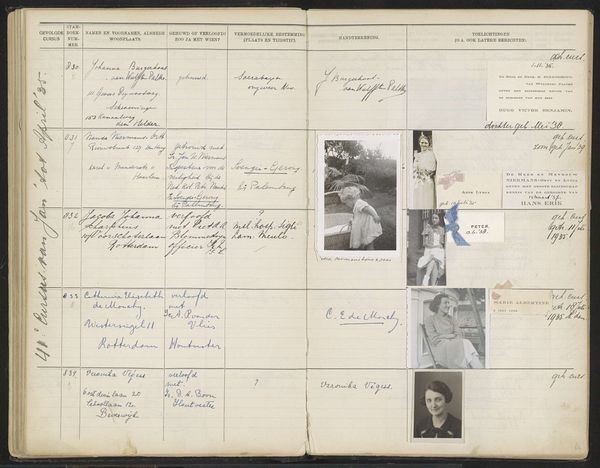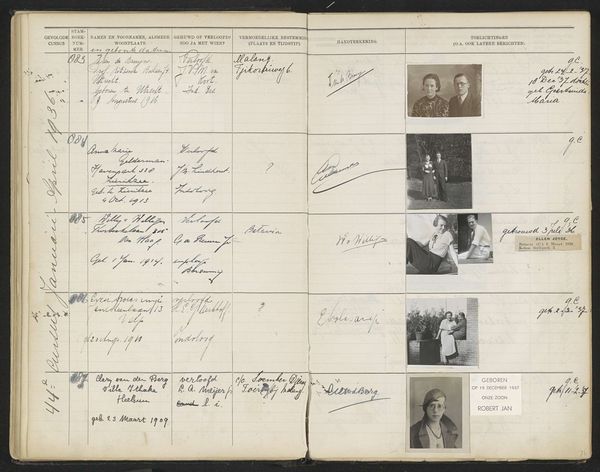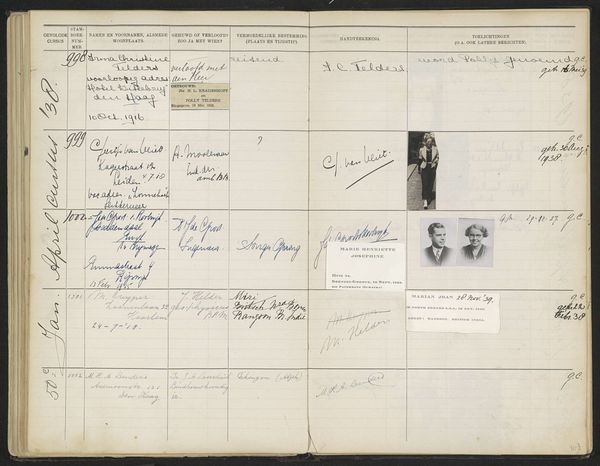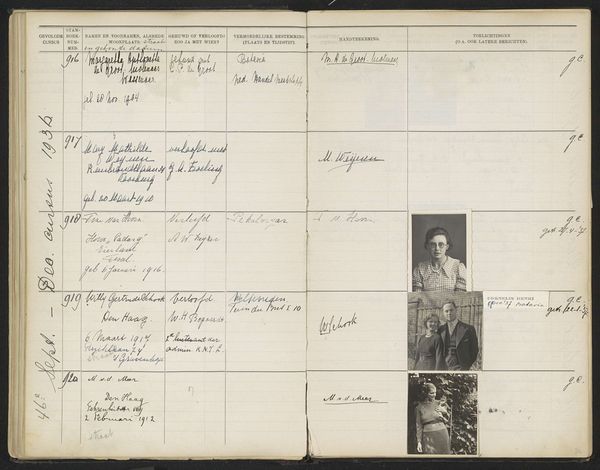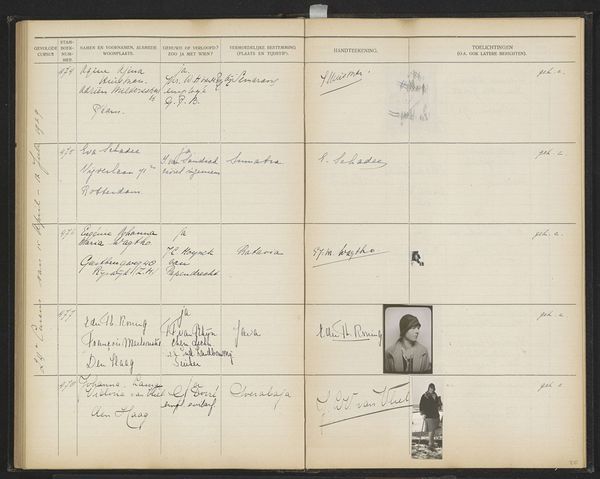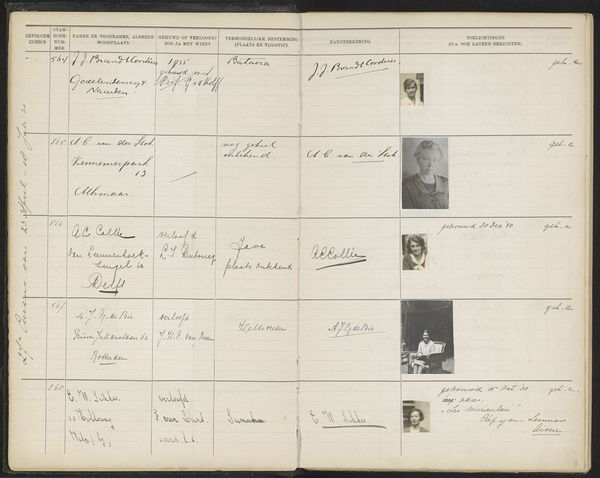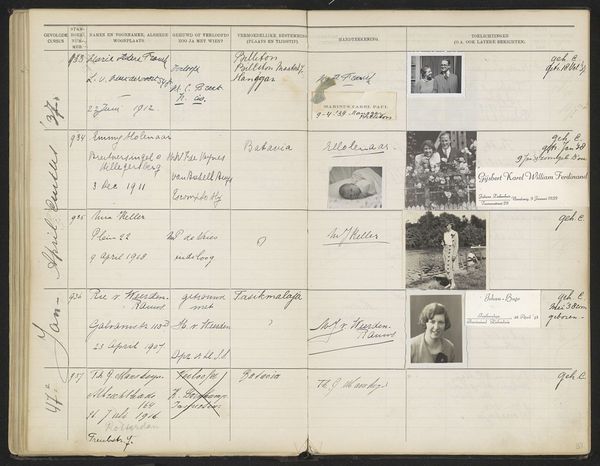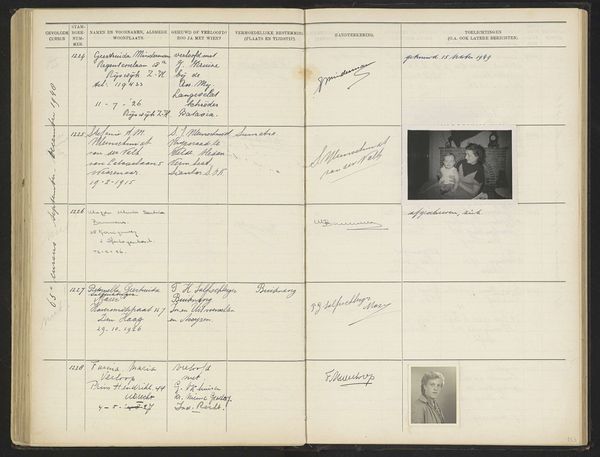
Blad 74 uit Stamboek van de leerlingen der Koloniale School voor Meisjes en Vrouwen te 's-Gravenhage deel II (1930-1949) Possibly 1935 - 1939
0:00
0:00
drawing, paper, photography
#
portrait
#
drawing
#
aged paper
#
hand-lettering
#
sketch book
#
hand drawn type
#
paper
#
photography
#
personal sketchbook
#
hand-drawn typeface
#
pen work
#
sketchbook drawing
#
storyboard and sketchbook work
#
sketchbook art
Dimensions: height 337 mm, width 435 mm
Copyright: Rijks Museum: Open Domain
Curator: We're looking at "Blad 74 uit Stamboek van de leerlingen der Koloniale School voor Meisjes en Vrouwen te 's-Gravenhage deel II (1930-1949)," a page from a register, possibly created between 1935 and 1939. It compiles information, signatures, and photographs. The overall medium includes photography, drawing and pen work on paper. Editor: My first thought is how stark and bureaucratic it feels. All those lines and regimented handwriting, paired with these formal little portraits—it suggests a system of control and categorization. There’s something undeniably cold about it. Curator: Precisely. The Koloniale School prepared young women for life in the Dutch colonies. It's crucial to recognize this not just as record-keeping, but as a tool in shaping a very specific kind of colonial subject. The register functioned as institutional documentation and implicitly as a site where colonial identities were constructed. Editor: Exactly! And note how the handwritten entries also serve a function. Each entry normalizes colonial authority, reflecting the broader societal structures in the Dutch colonial system. Who are these women, what were they taught, and how did this education impact their lives and the lives of those they encountered in the colonies? Curator: These registers offer a fascinating window into the social engineering of colonialism. The images and handwritten annotations reflect colonial ideology and broader questions regarding race and identity. Editor: Absolutely, there is such a constructed nature of "identity" presented on this page, which needs further research to uncover more personal histories of those who attended the school. It almost feels voyeuristic to look at such intimate details laid out so clinically. It forces us to ask, what were the long-term repercussions of such educational frameworks? How might they echo into contemporary struggles for post-colonial justice and cultural autonomy? Curator: Indeed. What appears to be a simple registry page opens into complex questions of power, gender, and representation. Editor: A cold document with reverberating echoes.
Comments
No comments
Be the first to comment and join the conversation on the ultimate creative platform.
